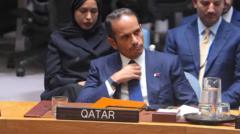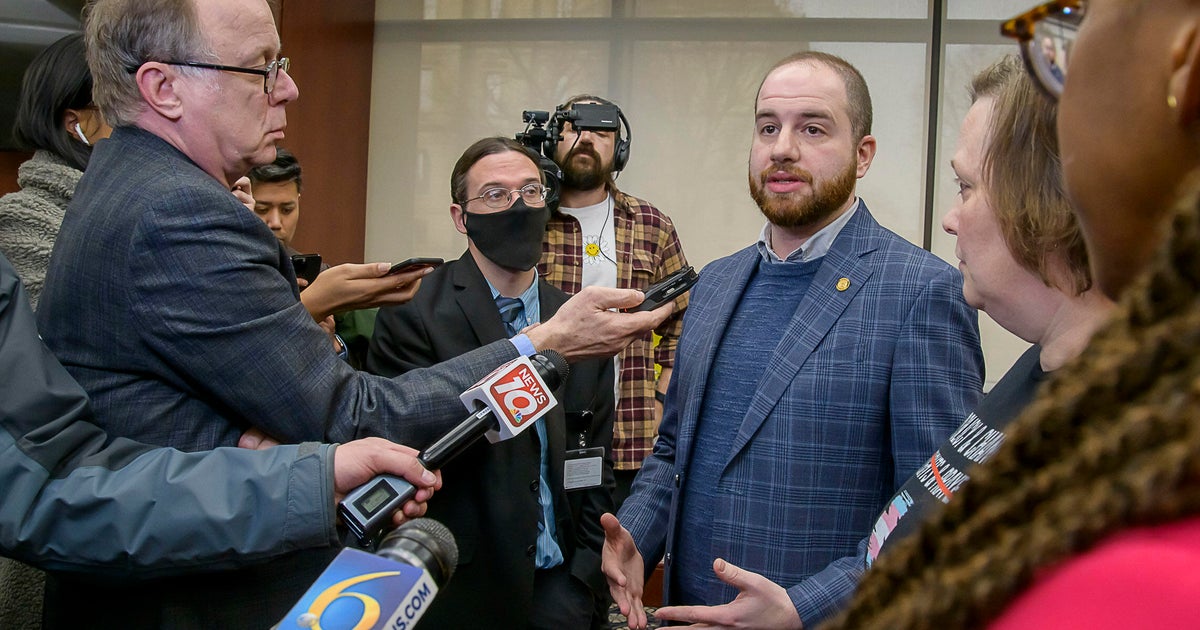Why Did the US Condemn Israeli Strikes on Qatar at the UN Security Council?

Published: 2025-09-12 12:56:36 | Category: technology
The United Nations Security Council has expressed strong condemnation of Israel's military strikes targeting a residential compound in Doha, Qatar, which were aimed at senior Hamas members. The statement, though not naming Israel directly, reflects a rare consensus among all 15 Security Council members, including the United States, who typically supports Israel in such matters. The situation raises critical questions about international diplomacy and the ongoing Israel-Gaza conflict.
Last updated: 14 October 2023 (BST)
Key Takeaways
- The UN Security Council condemned Israel's strikes in Doha, signalling a unified stance.
- Qatar plays a significant role as a mediator in the Israel-Hamas conflict.
- The US's support for the Security Council statement marks a notable shift in its traditional position.
- Hamas reported casualties, including members of its negotiating team and a Qatari security officer.
- The incident raises concerns over regional security and international diplomatic relations.
Background of the Incident
The recent military action by Israel in Doha has stirred significant diplomatic repercussions. Qatar, a nation that has historically mediated between Hamas and Israel, found itself at the centre of controversy following the airstrikes. The attacks reportedly resulted in the deaths of five Hamas members, including Khalil al-Hayya's son, while a Qatari security officer also lost their life. This incident highlights the volatile nature of Middle Eastern geopolitics and the intricate relationships between the involved parties.
The Role of Qatar
Qatar has positioned itself as a crucial mediator in the Israel-Hamas conflict, hosting the political bureau of Hamas since 2012. Its strategic location and resources have made it an essential ally for various international players, including the US, which maintains a significant military presence in the country. The recent strikes were particularly shocking, given Qatar's history of diplomatic engagement with both Hamas and Western nations.
UN Security Council's Response
The emergency meeting called by Qatar, Algeria, Pakistan, and Somalia resulted in a statement drafted by the UK and France. The council members emphasised the need for de-escalation and expressed solidarity with Qatar. This marked a rare moment of unity within the council, especially as the US, which typically blocks anti-Israel resolutions, backed the statement. The lack of direct naming of Israel in the statement does not diminish its impact, as it reflects a growing concern over Israel's actions in the region.
Israel's Justification for the Strikes
In response to the UN's condemnation, Israel defended its military actions, with its representative, Danny Danon, asserting that the strike was a necessary measure against terrorism. He stated, "This strike sends a message that should echo across this chamber. There is no sanctuary for terrorists, not in Gaza, not in Tehran, not in Doha." Israel's stance suggests a commitment to its security strategy, focusing on eliminating perceived threats, regardless of international backlash.
The Implications for International Relations
The strikes and subsequent UN response raise significant questions about the future of international relations in the region. Qatar's Prime Minister Mohammed bin Abdulrahman al-Thani expressed serious concerns regarding Israel's actions, indicating that such behaviour complicates diplomatic efforts. He stated, "This attack puts the international community before a test," highlighting the fragility of peace negotiations.
US Position and Regional Reactions
US President Donald Trump’s earlier criticism of the strikes adds another layer to the situation. While he acknowledged that the attack could complicate diplomatic efforts, he also noted that the elimination of Hamas remains a "worthy goal." This duality in the US stance reflects the complex nature of its foreign policy in the Middle East, where alliances with both Israel and Qatar must be carefully navigated.
Casualties and Their Impact
The loss of life in the recent strikes has deepened the crisis. Hamas reported the survival of its negotiating team, yet the deaths of key members, including the son of a prominent leader, threaten to derail ongoing peace efforts. The killing of a Qatari security officer further complicates the situation, as it directly implicates Israel in an attack on a nation that has been instrumental in mediating conflicts in the region.
The Bigger Picture
This incident serves as a stark reminder of the volatility in the Middle East. The strikes on Doha have shocked many and raised concerns about the stability of US-Qatar relations, especially following significant economic agreements and gifts exchanged between the two nations. The implications of this event could resonate throughout the region, influencing future diplomatic interactions and the ongoing quest for peace.
What Happens Next?
The immediate future remains uncertain. Qatar's role as a mediator could be jeopardised if tensions escalate further between it and Israel. Moreover, the international community is watching closely, as this incident tests the resolve and efficacy of diplomatic channels in addressing conflicts. All eyes will be on subsequent actions from both Israel and Hamas, as well as the responses from global powers, particularly the US and European nations.
FAQs
What prompted the UN Security Council to condemn Israel?
The UN Security Council condemned Israel's strikes on a residential compound in Doha targeting Hamas members, underscoring the need for de-escalation and expressing solidarity with Qatar.
Why is Qatar significant in the Israel-Hamas conflict?
Qatar has played a crucial role as a mediator between Hamas and Israel since hosting the Hamas political bureau in 2012, facilitating indirect negotiations and diplomatic efforts.
What was the US response to the strikes in Doha?
US President Donald Trump condemned the strikes, stating that they do not advance Israel or America's goals but acknowledged that eliminating Hamas could be a "worthy goal."
How did Hamas respond to the airstrikes?
Hamas reported that while its negotiating team survived, five members were killed in the airstrikes, including the son of a key leader, raising concerns about the future of negotiations.
What are the potential consequences of this incident?
The incident could further complicate Qatar's role as a mediator and strain its relations with Israel, impacting future peace negotiations and regional stability.
The recent airstrikes in Doha and the subsequent UN response highlight the complex and often contentious nature of Middle Eastern geopolitics. As international actors navigate these turbulent waters, the potential for renewed conflict or diplomatic breakthroughs remains a critical concern. #MiddleEastConflict #UNSecurityCouncil #QatarIsraelRelations



